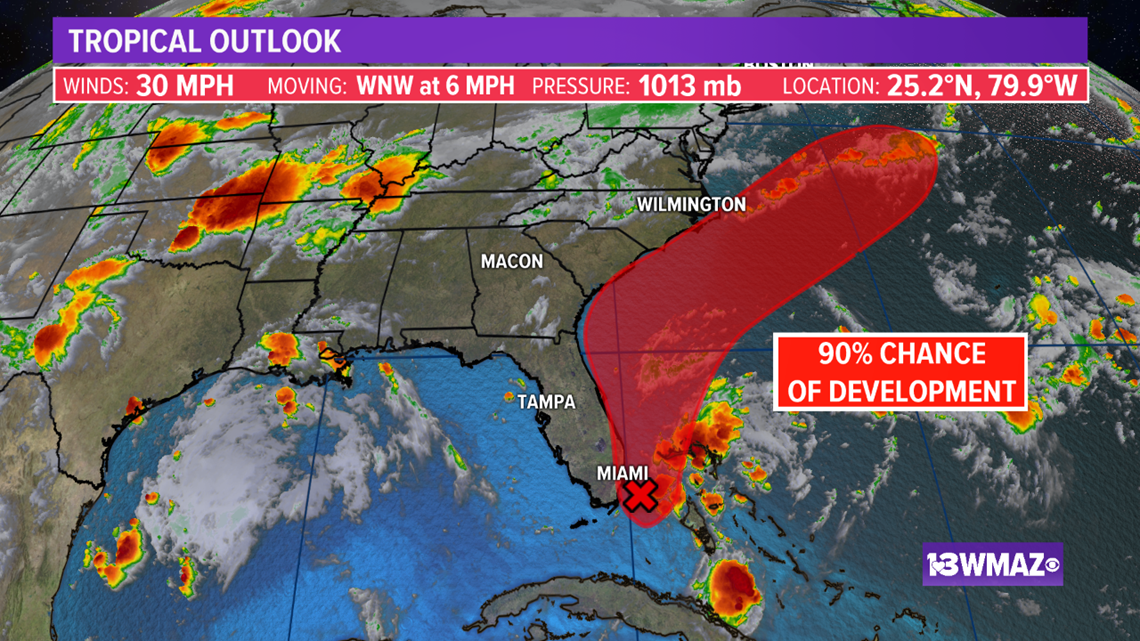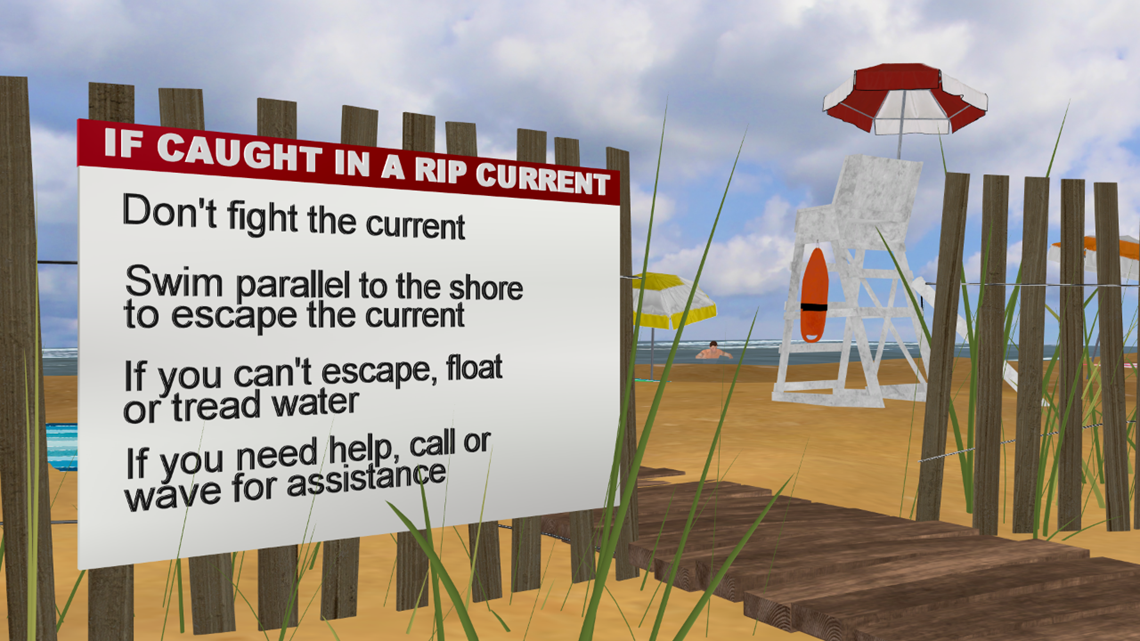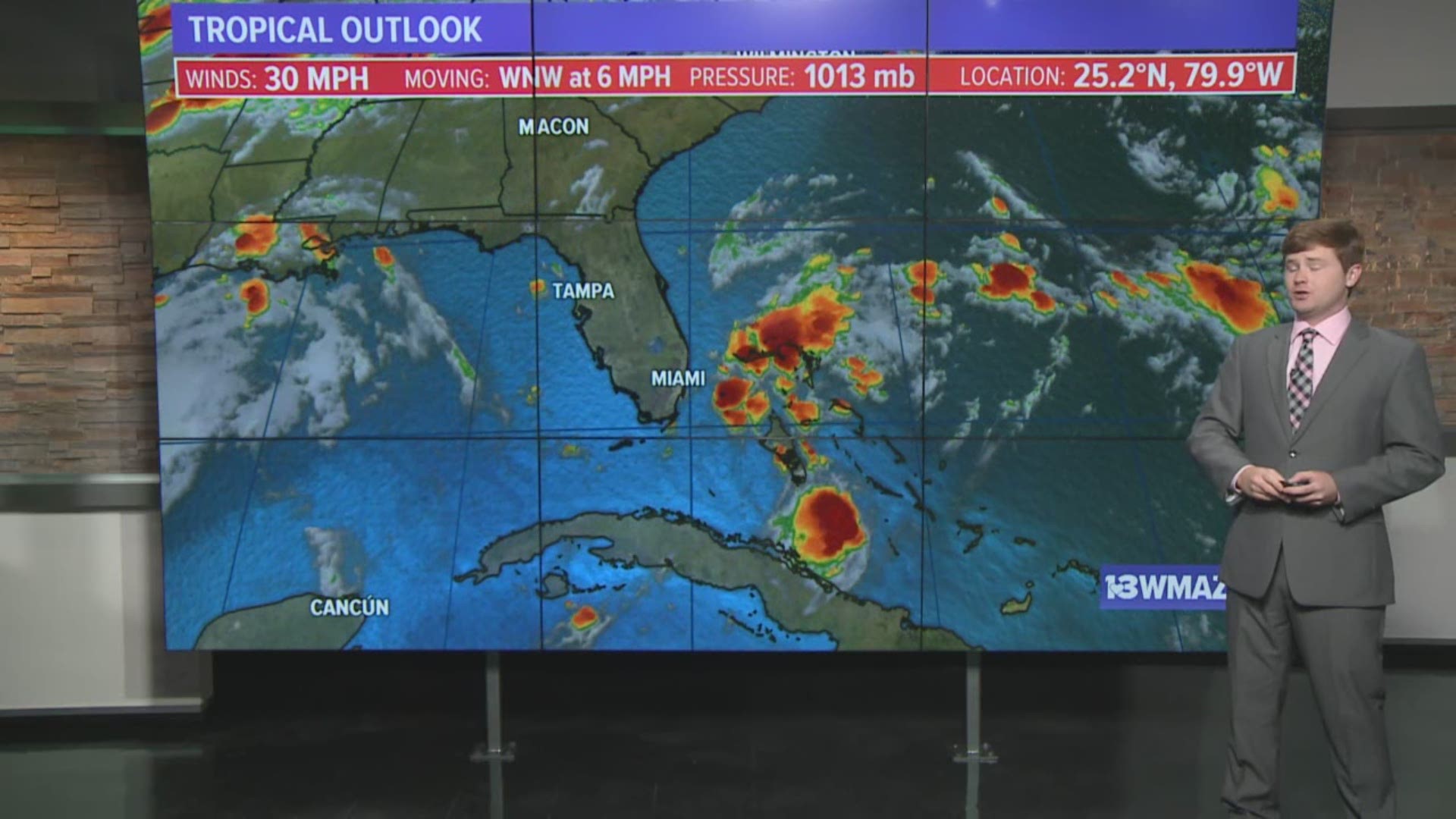The National Hurricane Center continues to monitor a tropical wave near the Bahamas for signs of tropical development. As of 2 p.m. Friday, the NHC is giving the system a 90% chance of developing into a tropical depression or topical storm within the next 5 days.


Regardless of tropical development, this system will likely pose an increased rip current risk along the east coast.
Rip currents or riptides develop when strong onshore winds force extra water onshore. All of this water must find a way back out to sea. Oftentimes, a narrow band of water will swiftly move perpendicular away from shore. This is a riptide, and it can be deadly.
If you get caught in a riptide, there are some things you can do to return to safety. First, don't swim against the current. Attempting to swim directly back to shore will only tire you out, and you likely won't make any progress toward land. Try swimming parallel to the coastline until you are out of the current. Also, try to get the attention of those on land so that lifeguards can assist you.


Of course, the easiest way to stay out of riptides is by obeying beach safety flags. If you see red or double red flags, you should stay out of the water. Red flags indicate that conditions are dangerous for even the best of swimmers, and double red flags indicate that the waters are closed to the public.
As for the impacts in Central Georgia, major effects are not likely. Central Georgia will see increased rain chances through the weekend, but direct impacts such as increased wind or severe weather chances are unlikely.

